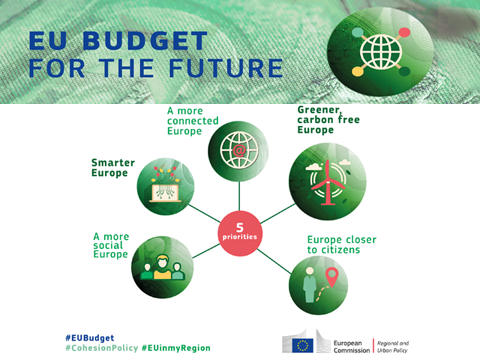The Commission welcomes yesterday’s vote of the European Parliament on its proposal to revise the rules on European funds 2014-2020, which aims to halve the current body of rules by making them both clearer and simpler to apply at all levels. The Commissioner for Regional Policy, Corina Creţu, explained: "Simplification is one of the major areas of the European 2021-2027 budget, but the Juncker Commission is already working on it for the current period, with the aim of making life eas
- 09 July 2018

The Commission welcomes yesterday’s vote of the European Parliament on its proposal to revise the rules on European funds 2014-2020, which aims to halve the current body of rules by making them both clearer and simpler to apply at all levels.
The Commissioner for Regional Policy, Corina Creţu, explained: "Simplification is one of the major areas of the European 2021-2027 budget, but the Juncker Commission is already working on it for the current period, with the aim of making life easier for local authorities and those receiving the funds, especially SMEs."
The following will change when the revised rules come into effect at the end of July:
1. more possibilities for combinations between the European Fund for Strategic Investments (EFSI), the core of the Juncker Plan, and Cohesion Policy funds: no further need for national co-financing when the latter are invested in an EFSI project, and the possibility of covering the first risk bucket;
2. less formality for those receiving the funds: they will be able to have their costs reimbursed by the EU more easily. Beneficiaries and managing authorities will be able to focus on results rather than on the collation and checking of financial documents.
The “single audit” principle is extended and the Commission will be able to rely more on evaluations carried out by its international partners and the Member States.
Finally, the revised rules make it easier for Member States to finance projects aimed at integrating migrants with their 2014-2020 cohesion budgets and to combat fraud more effectively.
